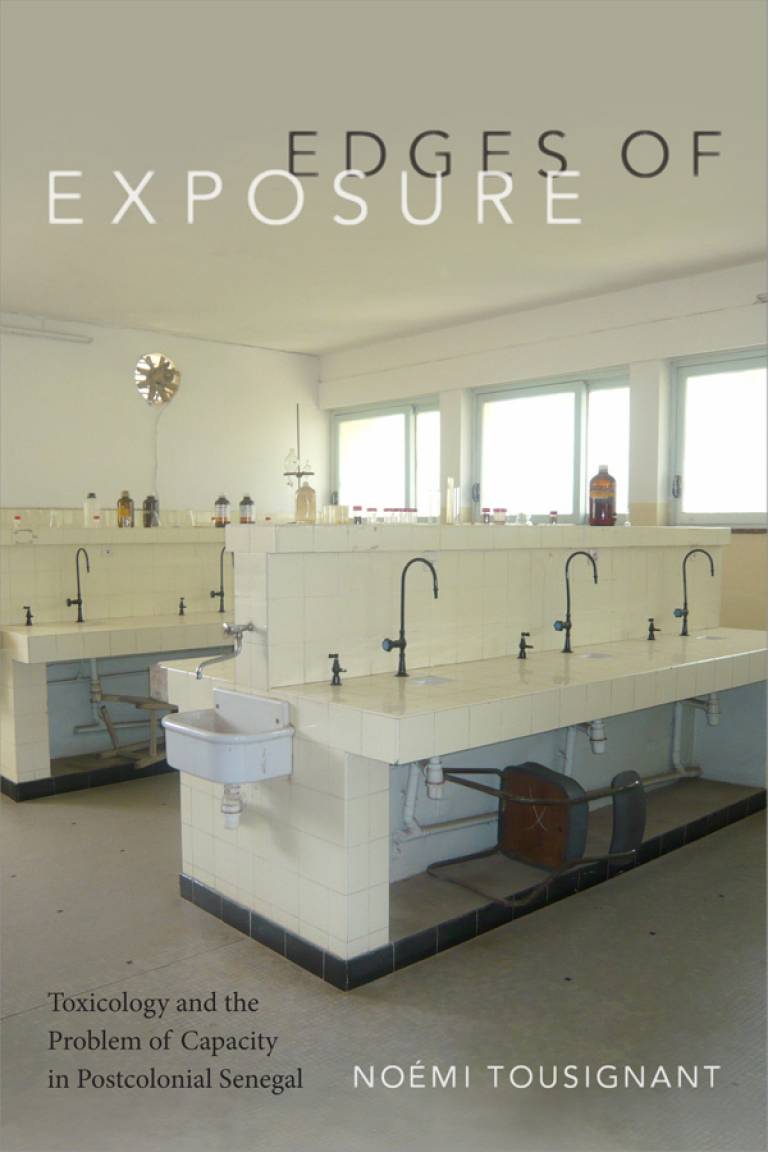Fleck Prize 2020: Noémi Tousignant
17 April 2020
STS congratulates Dr Noemi Tousignant on winning the Fleck Prize 2020 for her book Edges of Exposure: Toxicology and the Problem of Capacity in Postcolonial Senegal.

STS congratulates dr Noemi Tousignant on winning the 2020 LUDWIK Fleck Prize for her book Edges of Exposure: Toxicology and the Problem of Capacity in Postcolonial Senegal (Duke University Press 2018). The prize, overseen by the Society for Social Studies of Science, has been running for 28 years and recognises one outstanding book in the area of Science and Technology Studies (STS). Nominees (a staggering list of 70 this year) are rated on the basis of their contribution to the field, subject novelty, and overall scholarly quality.
The society remarked that ‘Edges of Exposure was selected for ita careful, unique ethnographic exploration of the sites, material histories and inequalities in the testing and management of toxic exposure and risk in Senegal.’
Accepting the award, Dr Tousignant stated: ‘Every time I look at the list of past Fleck Prize winners, a fresh wave of astonishment washes over me. These books and their authors are beacons; the influence of some exceeds footnotes, woven into the very ways in which we see, think and write, while still challenging us to keep doing so differently. I’m stunned and honoured that Edges of Exposure is joining them.
Many of these books decentre science and technology, looking critically at and away from sites and positions of privilege. Edges of Exposure is a book about the effects of global inequality on capacities to make knowledge in an African place, Senegal. It is also about the inequalities in protection – here, from toxic presences and effects – that result. By setting these inequalities together, I hope that Edges of Exposure helps shake up a lopsided geography of both science and life chances.
Past prize-winners have also pioneered vocabularies and styles of writing, recognising the craftwork in our own ways of knowing. I worked hard, in writing Edges of Exposure, to convey the fine-grained textures of Africa-based scientific spaces, equipment, work, dreams and absences, as material conditions but also as rhythms of activity, refracting and mediating scarcity and subordination into qualities of knowledge and environments.
Leverhulme Trust funding, obtained by Wenzel Geissler and Ann Kelly (and additional support from the UK Economic and Social Research Council, the Wellcome Trust and Canada’s Social Science and Humanities Research Council) gave me the freedom to explore things before I was able to say why they were interesting. They and others around us – John Manton, Ruth Prince, Branwyn Poleykett and Guillaume Lachenal to name a few – helped me find ways of doing so, eventually. For supporting the book, Kim Fortun, Gabrielle Hecht, and Courtney Berger at Duke and the Fleck Prize committee, especially. My family, and the many people in Senegal who let me into their work, lives, records and networks.
At this time of pandemic crisis layered onto ongoing environmental destruction and deepening disparities – along lines of race, class and geography – in distributions of risk and harm, of healthcare, of knowledge/technologies, and of good food, safe housing, green space, breathable air and secure incomes, we need, as ever, to sharpen, innovate and deploy the decentring and future-opening capacities of STS.’
About the Prize:
The Fleck Prize is named after microbiologist Ludwik Fleck (1896-1961), author of The Genesis and Development of a Scientific Fact. Fleck's case history of the discovery of the Wassermann reaction to syphilis was originally published in German in 1935, and republished in English in 1979 after having been cited by Thomas Kuhn as an important influence on his own conception of the history of science. Both Fleck's history of discovery, and the history of his book's re-discovery, exemplify a view of progress that continues to inform research in Science and Technology Studies, The Fleck Prize is awarded annually for an exemplary book in Science and Technology Studies. Multi-authored book are eligible if they represent original work. Reprints, second editions, edited volumes, reference works and similar volumes are ineligible. Books must be published in English or newly appearing in translation during the eligibility period. Books with publication dates in the three years prior to the year they are evaluated are eligible. Books published in 2017, 2018, and 2019 would be evaluated in 2020 for the 2021 award, for example. Books may be re-nominated until their eligibility expires. Nominations may be made by 4S members or book publishers.
Read more: https://www.4sonline.org/prizes/fleck
 Close
Close

